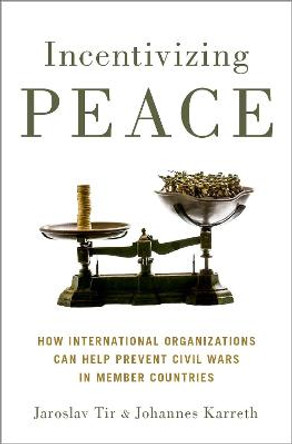America finds itself in an acute predicament: The international order it has helped construct over many decades is under increasing stress from various quarters. As the world's predominant military power and principal guarantor of global peace and security, the United States must fulfill its many responsibilities without becoming entangled in costly conflicts that threaten its security, deplete its national power, and weaken its international standing. Preventive Engagement proposes a long-term strategy for how the United States can manage the risks of a more turbulent world in a way that lessens the demand for--and potential drain on--U.S. power. Its novel approach adapts the basic techniques used to prevent many societal problems, such as infectious diseases, violent crime, and drug trafficking. Preventive engagement has three complementary components: the promotion of policies known to lower the risk of violent conflict and political instability; the anticipation of crises most likely to precipitate major U.S. military engagement; and a concerted effort to mitigate if not resolve conflicts that erupt in the short term before escalating into a threat to U.S. interests. This comprehensive approach stresses early detection and foresight to actively manage sources of conflict. Using examples from Syria, Ukraine, and the South China Sea, Preventive Engagement shows its strategy in practice and illuminates the role that international actors, including NGOs, the United Nations, regional organizations, and private businesses, can play to further U.S. preventive goals.
About the AuthorPaul B. Stares is the General John W. Vessey senior fellow for conflict prevention and director of the Center for Preventive Action at the Council on Foreign Relations. His books include Rethinking Energy Security in East Asia (2000); Global Habit: The Drug Problem in a Borderless World (1997); and The Militarization of Space: U.S. Policy, 1945-1984 (1987). He lives with his wife and three children in Bethesda, Maryland.
ReviewsAn erudite, elegant, extremely well informed, and very thoughtful explanation of current American grand strategy, this book provides specific, finite, and feasible recommendations for improving the US government's ability to anticipate and manage the latent risks of war. -- Michael O'Hanlon, senior fellow at The Brookings Institution
Book InformationISBN 9780231182461
Author Paul B. StaresFormat Hardback
Page Count 344
Imprint Columbia University PressPublisher Columbia University Press






